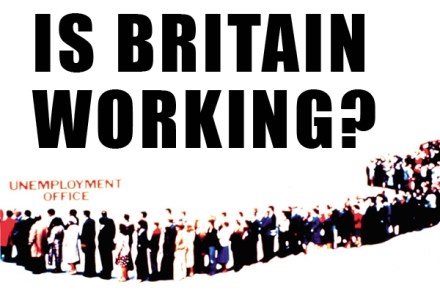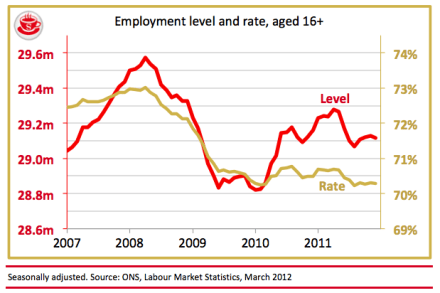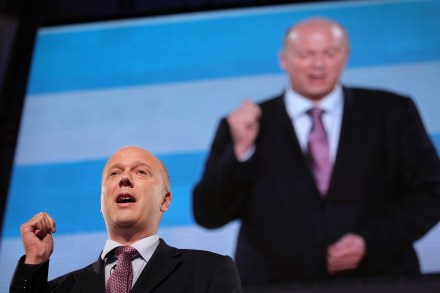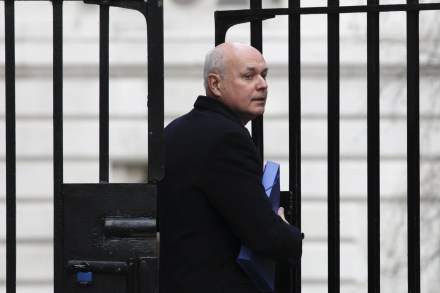Private sector growth pushes employment to new record high
The number of people in work in the UK hit 29.6 million in August-October – the most ever — according to today’s figures from the Office for National Statistics. So despite GDP still languishing 3 per cent below pre-recession levels, employment has fully recovered, with half a million jobs created in the last year: The rise in employment has been thanks to the private sector more than making up for the job cuts in the public sector. The numbers don’t quite back up David Cameron’s claim that there are 1 million more private sector jobs than when he took office — to get that he must either be using January-March
















